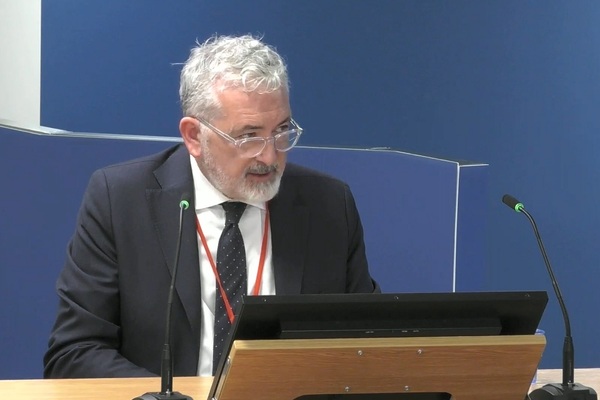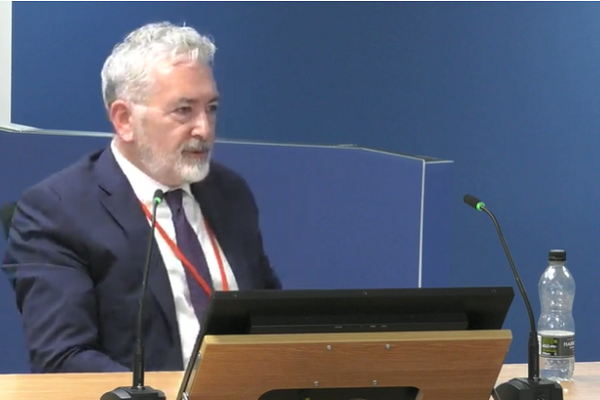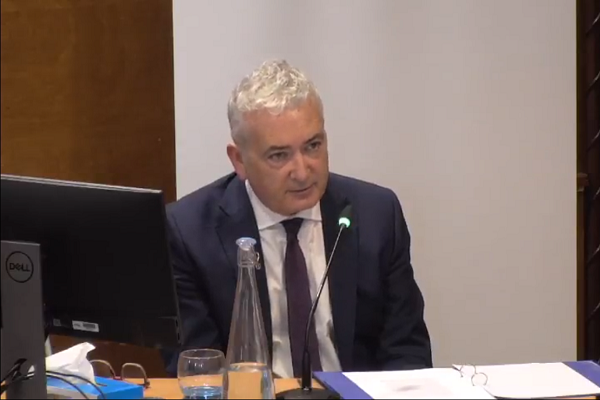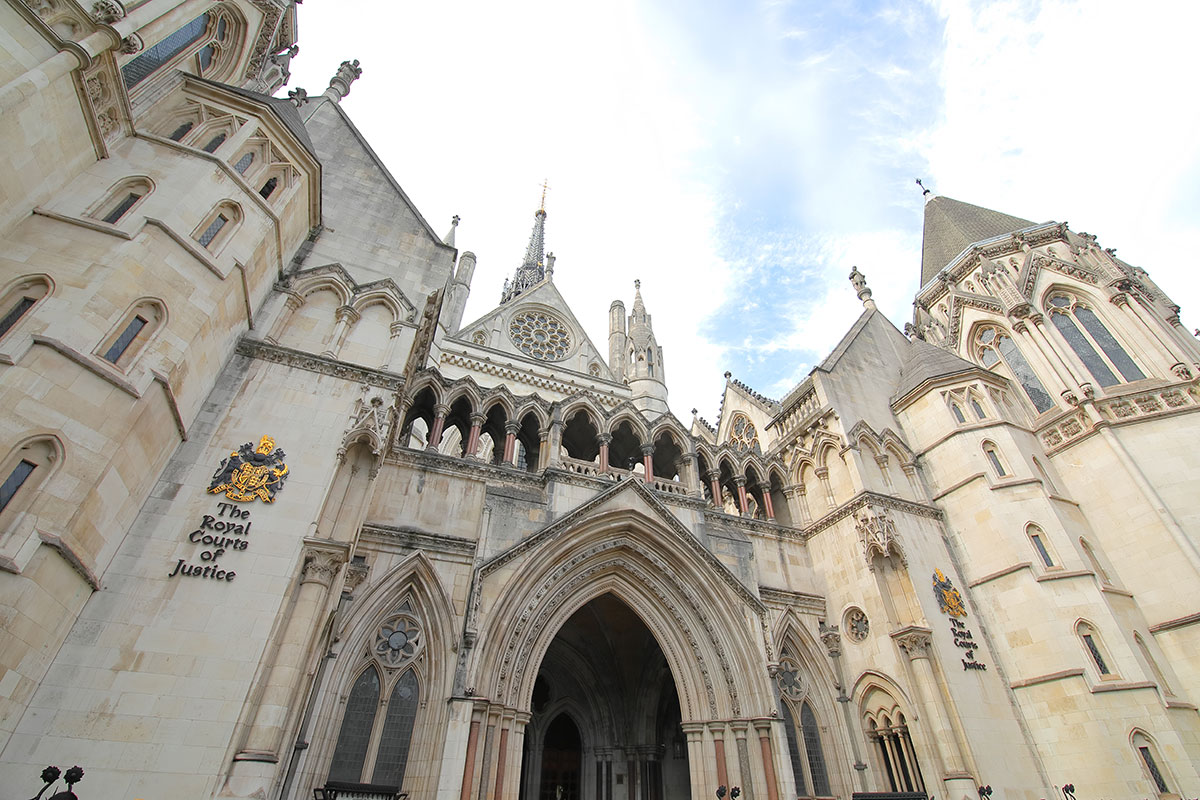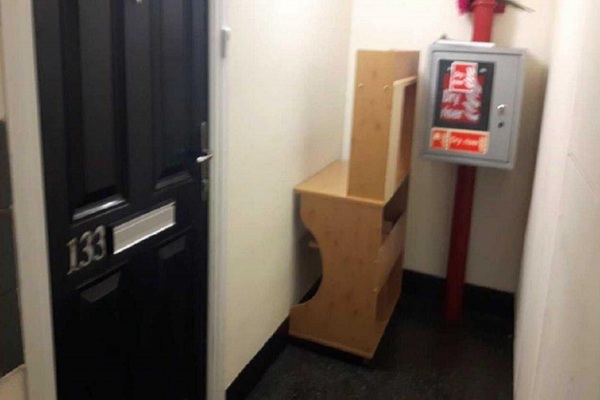You are viewing 1 of your 1 free articles
Former KCTMO chief executive admits personal failings over historic safety issues at Grenfell Tower
The former chief executive of Kensington and Chelsea Tenant Management Organisation (KCTMO) admitted today at the Grenfell Tower Inquiry that a failure to fulfil his role contributed towards historic safety issues in the block.
Robert Black led the Royal Borough of Kensington and Chelsea’s housing management company from 2009 until shortly before it closed in January 2018.
Giving evidence to the inquiry today, he was questioned about a London Fire Brigade (LFB) deficiency notice issued for Grenfell Tower in March 2014, which raised similar concerns to two previous consultants’ reports from 2009 and 2013.
Issues cited by the LFB’s notice included a “failure in the effective monitoring of preventative and protective measures” and a “failure to ensure that the premises and any facilities, equipment and devices are maintained in an efficient state”.
Inquiry lead counsel Richard Millett QC put it to Mr Black today that if KCTMO had taken the advice it received in 2009 and 2013, the notice would not have been served.
“Yes, if we’d done our job properly,” Mr Black replied.
Mr Black agreed with Mr Millett that the notice was serious because it meant KCTMO’s systems at Grenfell Tower “put it in breach of its statutory obligations” and could have “fatal consequences” for residents.
He also accepted that his role as chief executive was to make sure that KCTMO’s management and maintenance procedures were “adequate” and “implemented effectively”.
“And do you accept that you failed to fulfil your role in those respects?” Mr Millett then asked.
“In terms of my role, yes,” Mr Black answered.
Through his evidence today, Mr Black painted a picture of an organisation in disarray when he joined in 2009 from Circle Housing, now part of Clarion Housing Group, claiming he was under “gigantic pressure” as many of his executive directors left during his first months in charge.
Early in the session, Mr Millett asked Mr Black if he accepted that “if people felt unsafe in their homes, at least in numbers, then that would tend to indicate a fundamental and perhaps existential problem with the way the TMO was working”.
“I’m not sure if I agree with that,” Mr Black said.
Later he was asked about KCTMO’s emergency plan, which despite being last revised in February 2016 contained information about Grenfell Tower which was 15 years out of date by the time of the fire and was previously described as “obsolete… for many years” in the inquiry’s phase one report.
A recommendation from the 2009 consultants’ report had been to have an up-to-date emergency plan for Grenfell Tower.
“The reality is that information should have been updated by staff and the whole thing I’ve suffered throughout my career working with people is the ability to forget to fill in the paperwork,” Mr Black said when asked why it had become so out of date.
“So again whether I apologise… previously, you know, it didn’t make me happy that it was out of date.
“I don’t know why people didn’t do, because actually this was escalated down to lower management to do as part of their roles and should have been keeping it up to date.
“So, in a sense, I can’t get away from it; it’s out of date is, I think that there was more up-to-date information available, but it wasn’t there, so I just have to accept that responsibility.”
Pushed by Mr Millett on whether he accepted responsibility as chief executive for his staff’s failure to update the information, he said: “As a CEO, my job isn’t to fill in 400 or 500 or 650 individual sheets or check them individually, that’s why I have a staff team, management structure.
“So if they fail to do it, yes, the buck stopped with me but I can show a trail where actually this was not my responsibility to fill in. I accept my responsibility as chief exec, but not to fill in the details like this because that sits with my local team as they are employed to do.”
Pressed again on whether he was ultimately responsible for the failure to keep the emergency plan up to date, Mr Black replied: “Pass.”
But after an intervention from inquiry chair Sir Martin Moore-Bick, Mr Black accepted that he “ultimately [had] to take responsibility for the way the system works or doesn’t work”.
On the subject of personal emergency evacuation plans (PEEPs) for disabled residents, Mr Black told the inquiry he had an “aspiration” to put them in place early in his role but that it later proved too difficult.
“There is evidence and evidence and evidence that in general it doesn’t work for all of general needs”, he said, adding that “the government is still struggling to move it from a reactive service to a proactive service”.
The inquiry continues.
Sign up for Inside Housing’s weekly Grenfell Inquiry newsletter
Each week our sister publication Inside Housing sends out a newsletter rounding up the key news from the Grenfell Inquiry, along with exclusive analysis of what it all means for the social housing sector.
Already have an account? Click here to manage your newsletters
